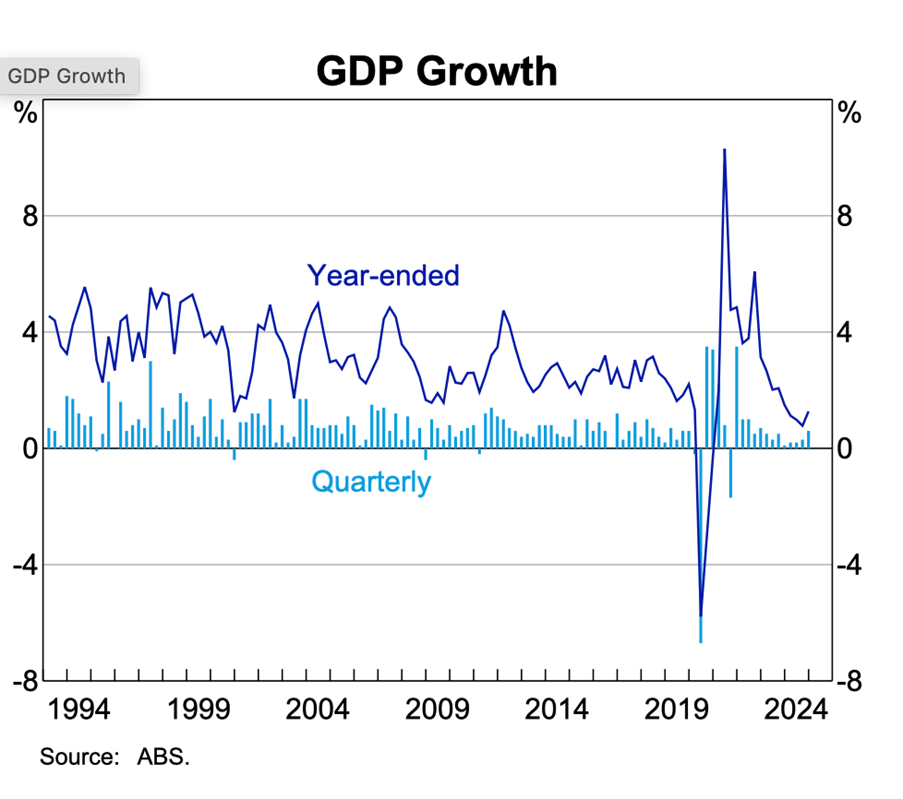

There’s old saying coined by the great Mark Twain: “everyone talks about the weather, but no one does anything about it.” Well, of course, in the 19th-century when Twain was entertaining and lecturing around the world, he was right. In case you missed it, both a local and global concern is the poor productivity of economies. This has led to a rash of news articles on the subject, and my mind jumped to Twain's quote while reading them: Everyone talks about productivity, but no one is really doing anything to raise it.
Of course, we're talking here about greater economic productivity, rather than the 1:1 productivity of an individual worker making something for a business, for example. The latter obviously ladders up to the former, but in this context, I'm talking about the heartbeat of the economy.
If the nation is producing more without having to work longer hours or throw in more money, that’s a sign the economy’s running well. When productivity goes up, it usually means businesses are more efficient, wages can rise sustainably, and the economy can grow without pushing up inflation.
Australia has a bit of a productivity problem right now, as flagged by - among other market watchers - the Reserve Bank Board in its rates statement yesterday.
Interestingly, some experts think we should simply pay workers more and that will solve our productivity problems. These same experts don’t seem keen to point the finger of blame at governments, however, for low productivity.
That said, while I’d argue few people in governments are helping to boost productivity, big companies actually are, and it will happen via artificial intelligence (AI). Not only will AI help boost the output of service businesses in particular, but it will also reduce the demand for workers in the short term and will mean labour productivity will spike. Output rises, we're using less workers to do it, boom: productivity solve.
To get you up to speed, let me share with you what these experts are saying.
Economist Danielle Wood, chair of the government’s Productivity Commission, told the AFR what she thinks is needed to boost our output per unit of inputs or labour and capital i.e., machines, technology, etc. She explained that boosting productivity leads to higher incomes and a better standard of living.
Yep, I’d agree with that.
Wood tells us that productivity growth “has averaged just 0.4 per cent a year since 2015. This is the lowest growth rate in 60 years and well-below its long-term average”, and furthermore “if we could boost productivity growth back to its 60-year average, the average Australian full-time earner would be at least $14,000 better off in 10 years than if we stay on the current trajectory."
Wood doesn’t let the Government off the hook for our poor productivity either: “They support the things that enable productivity – our health, education, care, planning and transport systems. They can also sharpen incentives for work, investment and innovation through our tax, competition and regulatory environment.”
I agree with Wood that governments have big impacts on education, taxes, encouraging investment in research and development, training tradies, reducing pointless red tape and being pro-business rather than anti-commercial enterprises. (The latter point is my additional view, as you wouldn’t expect Wood to be so in-your-face with the mob who pays her!)
And this isn't just another anti-Albanese smackdown from me. A succession of Coalition and Labor Governments have ignored the negatives for small and medium-size businesses, which is underlined by the fact that Small Business Ministers are not in the inner Cabinet!
One guy who I’ve been inspired by over the years is the SMH’s Economics Editor, Ross Gittins. I’ve interviewed Gittens in the past for my old Sky News Business program called Switzer, and we’ve exchanged pleasantries over the years as we’ve written for competing newspapers. He’s a smart guy. His latest take on productivity came with the headline: “Want greater productivity? Set wages to rise by 3.5 per cent a year.”
Like me, Gittens is pretty cynical about politicians such as Dr Chalmers talking about boosting productivity over this new term for the Albanese Government.
Here are his main points:
In summation, Gittens thinks governments should mandate a 3.5% pay rise each year to boost consumption, economic growth and the incentive for businesses to invest in technology.
This is a huge call.
While I think the likes of CBA could easily be forced to commit to this plan, smaller businesses might rather close their doors than capitulate to such a rise.
Economists and others who haven’t run a business are ignorant of the other real-world issues that really hurt productivity.
Let me list them:
I could go on, but I think I’ve made my point.
Gittens has a supportable point when it comes to bigger businesses with limited competition and smaller companies that are in the right, high-growth industries and are flying high. However, the SME sector isn’t booming.
The NAB business conditions reading isn’t painting a picture of booming business. This chart below of GDP growth confirms we’ve been in the business doldrums for some time.

Labor has a new Small Business Minister, Anne Aly, who I hope really gets to understand the big challenges for small business owners. While most of these people go into business because they’re positive and know they must pay people good money to make good profits, the headwinds out there are much stronger than the tailwinds. Someone in leadership needs to think and - more importantly - act outside the square.
In all my years, I’ve seen some good small business ministers, but they seldom take on their colleagues to be a champion for the sector that’s the biggest employer in the nation, yet is perennially coping with a litany of headwinds that a good government could reduce.
If you make doing business easier, don’t think small business operators will be lazy and simply bank profit. If you think that, you’ve never run a business. Help a small business and they’ll ‘go for growth’ big time. That’s when Australia’s productivity will surprise economists and other experts.
There have been many social, economic and political changes since Australia’s productivity was a lot higher.
While many of these changes have been great for inclusiveness, understanding and life-work balance, there could be productivity in the workplace effects that mean leaders and owners of business, as well as governments, need to play a very different game to get the best results.
It might be more than just paying more money.